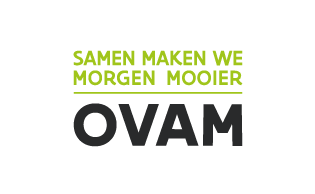Environmental assessment of CO2 mineralisation for sustainable construction materials
Abstract
Andrea Di Maria, Ruben Snellings, Luc Alaerts, Mieke Quaghebeur, Karel Van Ackera
Oktober 2019
Mineral carbonation is a carbon utilisation technology in which an alkaline material reacts with carbon dioxide forming stable carbonates that can have different further uses, for instance as construction material. The alkaline material can be a residue from industrial activities (e.g. metallurgic slags) while CO2 can be recovered from industrial flue gasses. Mineral carbonation presents several potential environmental advantages: (i) industrial residues valorisation, (ii) CO2 sequestration and (iii) substitution of conventional concrete based on Portland cement (PC). However, both the carbonation and the CO2 recovery processes require energy. To understand the trade-off between the environmental benefits and drawbacks of CO2 recovery and mineral carbonation, this study presents a life cycle assessment (LCA) of carbonated construction blocks from mineral carbonation of stainless steel slags. The carbonated blocks are compared to traditional PC-based concrete blocks with similar properties.

.png)






